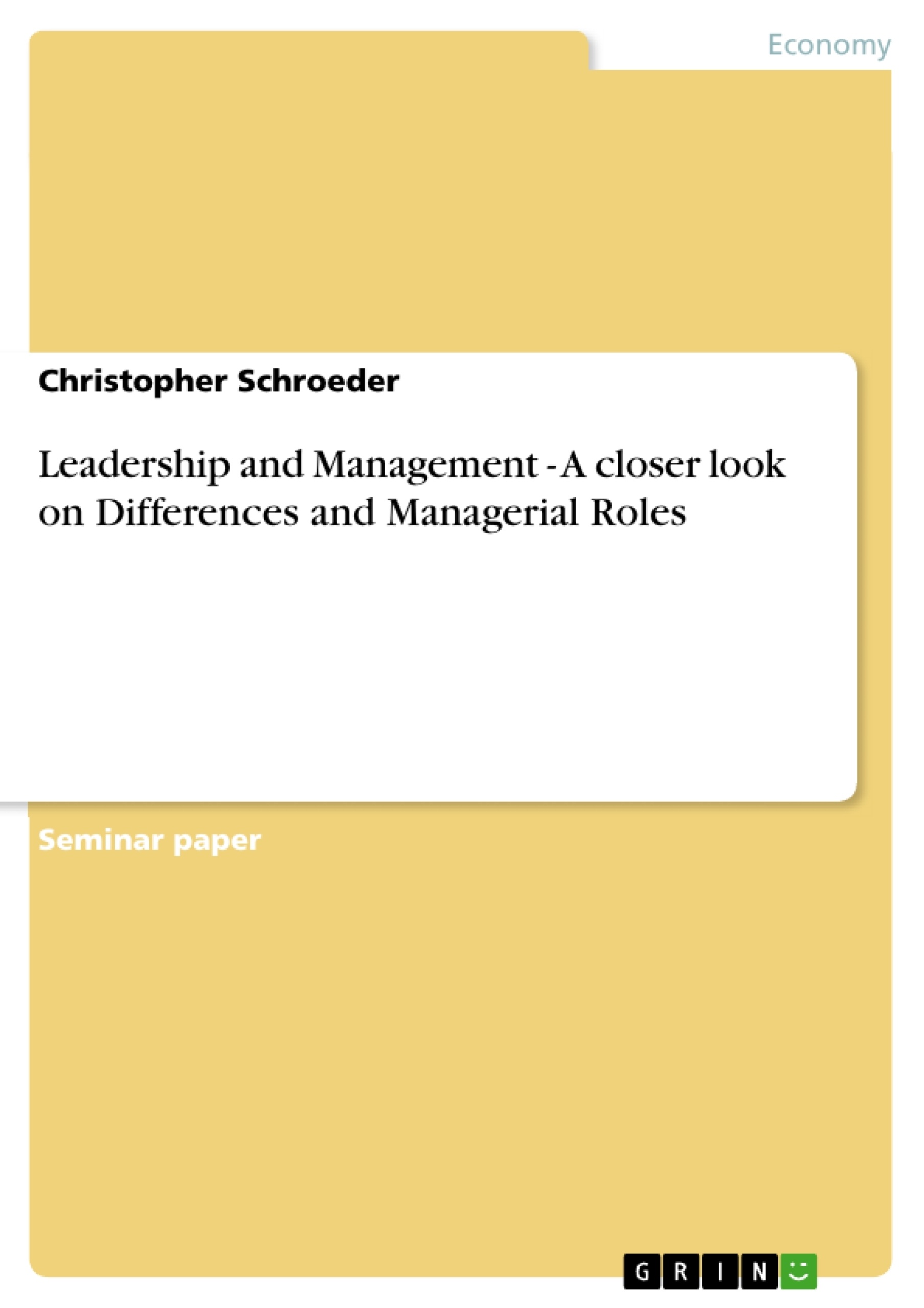Today’s business is based on the division of labor. Different people have to work together in order to create values and offer products or services. But these people are individuals with different needs and wants, different skills and abilities. They have different social, economical or cultural backgrounds as well as different working methods. They have opposing interests and suffer from a lack of information about what others need and want. Therefore, the division of labor requires a coordinating element: a manager or a leader.
It is their task to coordinate all the individuals creating a unified direction of work. By this, all efforts can be focused on a common goal.
Commonly, the terms “management” and “leadership” are used synonymous with reference to the coordination function in business or administration.
This raises the question whether there is a difference between the two terms “management” and “leadership” and if so, how this difference can be described and defined.
Sometimes one can hear the saying that “managers do the things right, but leaders do the right things”. This adage states a significant difference between leadership and management. However, there is a heated debate about this topic. The opinions differ widely about this topic.
This paper will discuss the terms “management” and “leadership” in a theoretical and practical way. These two terms will be defined as well as differentiated from each other. A special focus will be laid on the management functions and managerial roles and activities. This will be discussed from a theoretical point of view. In addition, a practical example will clarify the theoretical angle.
Table of Contents
- INTRODUCTION
- DEFINITIONS
- MANAGEMENT
- LEADERSHIP
- DIFFERENCES BETWEEN MANAGEMENT AND LEADERSHIP
- MANAGEMENT SKILLS AND MANAGEMENT ROLES
- MANAGEMENT SKILLS
- Overview
- Technical Skills
- Human Skills
- Conceptual Skills
- MANAGEMENT ROLES
- Overview
- Interpersonal Roles
- Informational Roles
- Decisional Roles
- A TYPICAL MANAGER'S DAY
- CONCLUSION
Objectives and Key Themes
The primary objective of this paper is to explore the concepts of management and leadership, examining their differences and how they relate to organizational function. The paper will delve into the definitions, skills, and roles associated with management, providing a theoretical and practical understanding of these concepts.
- Defining management and leadership, highlighting their distinct functions and characteristics.
- Analyzing the differences between management and leadership, specifically examining the adage that “managers do the things right, but leaders do the right things.”
- Exploring the essential management skills, including technical, human, and conceptual skills, along with their role in effective management.
- Examining Mintzberg’s managerial roles, encompassing interpersonal, informational, and decisional roles, and their implications for managerial practice.
- Providing a practical example of a typical manager's day to illustrate the theoretical concepts discussed.
Chapter Summaries
The paper begins by introducing the concept of management and leadership as essential coordinating elements in today's division-of-labor-based business environment. It then delves into definitions of management and leadership, drawing upon the work of Robbins and Kotter, exploring the core functions of planning, organizing, leading, and controlling within management. The paper further examines the key differences between management and leadership, emphasizing the distinction between doing things right and doing the right things.
Chapter 4 focuses on management skills and roles, outlining three primary management skills - technical, human, and conceptual – and their importance in effective management. This chapter also presents Mintzberg's managerial roles, encompassing interpersonal, informational, and decisional roles, providing a deeper understanding of the diverse tasks managers undertake. The chapter concludes with a practical example illustrating a typical manager's day and the application of various management skills and roles.
Keywords
The key terms and concepts explored in this paper include: management, leadership, planning, organizing, leading, controlling, technical skills, human skills, conceptual skills, managerial roles, interpersonal roles, informational roles, decisional roles, and division of labor. These concepts provide a foundation for understanding the distinct characteristics and functions of management and leadership in organizational contexts.
- Citar trabajo
- Dipl.Kfm, Christopher Schroeder (Autor), 2010, Leadership and Management - A closer look on Differences and Managerial Roles, Múnich, GRIN Verlag, https://www.grin.com/document/200215



